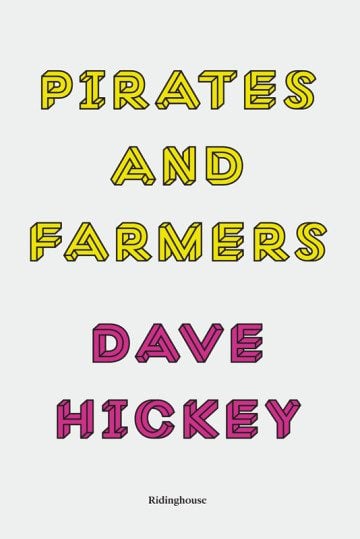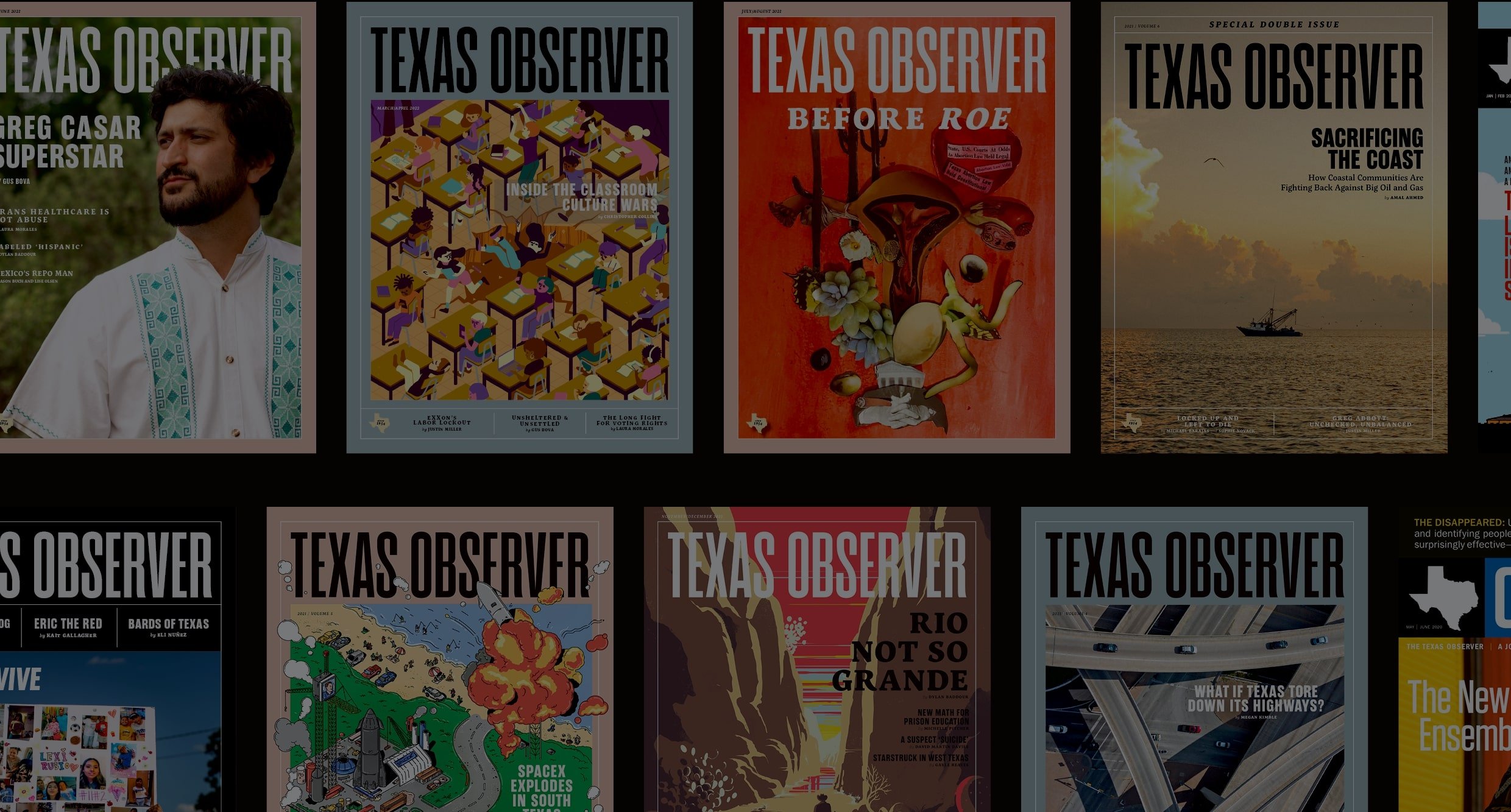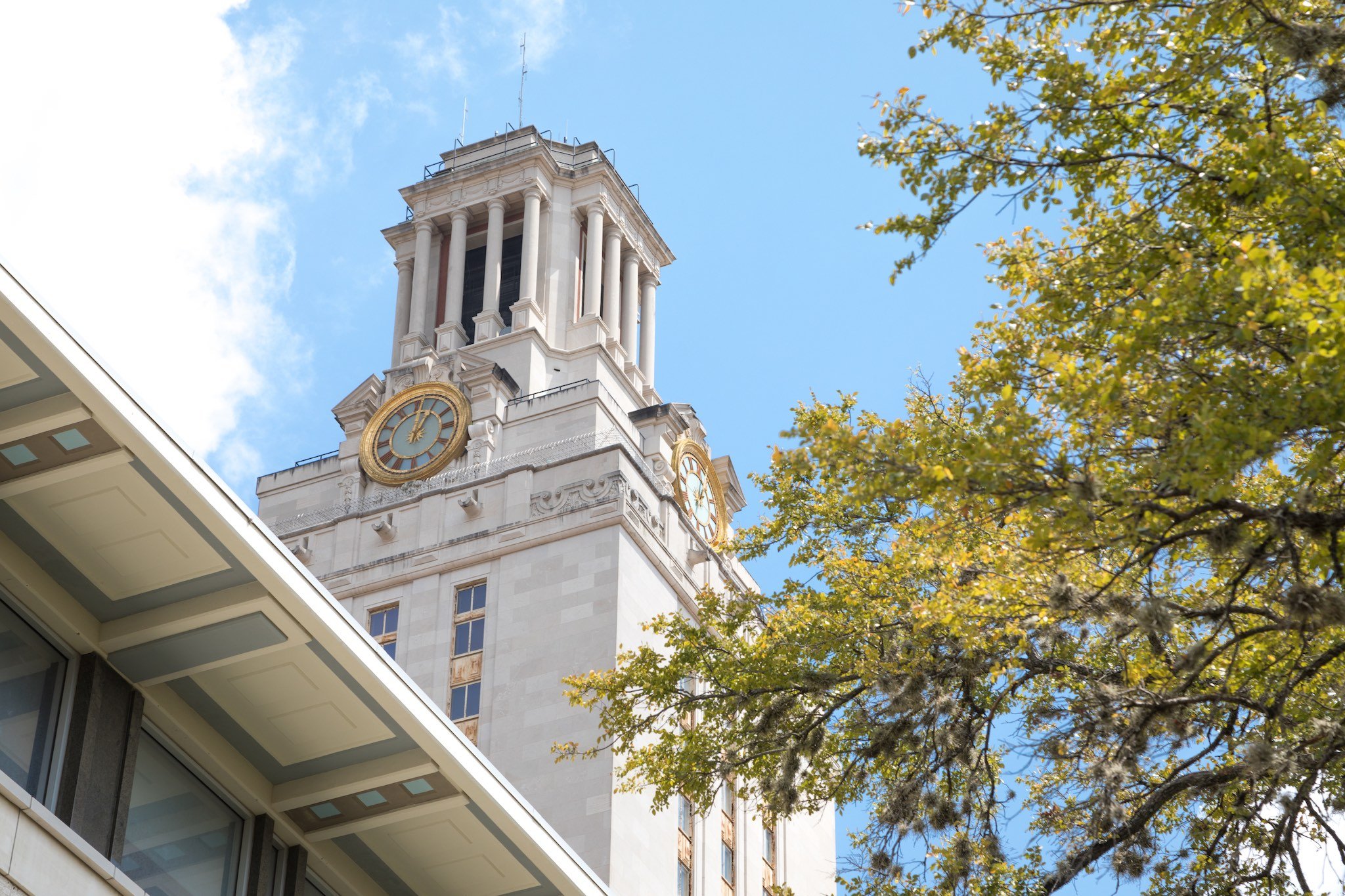
Art Critic Dave Hickey Calls It Quits (Again) with Pirates and Farmers
A version of this story ran in the March 2014 issue.
It was [George] Washington’s one simple desire to be seen relinquishing power, that he might be the first American to be seen stepping down from office. He was ultimately seen doing so, and the world is better for it.” —Dave Hickey, “American Cool,” Pirates and Farmers
Dave Hickey, the Texas-born art critic, announced his retirement from the art world in October 2012. He made the announcement loudly, going to great lengths to be sure that he was seen stepping down—in interviews, lectures and even a book, Pirates and Farmers: Essays on Taste. The swashbuckling provocateur and acknowledged genius (he won a MacArthur Fellowship in 2001) wrote for the likes of Rolling Stone, Art News, Artforum, Harper’s and Vanity Fair for decades. He also served as executive editor for Art in America and arts editor for the Fort Worth Star-Telegram, owned galleries, curated the Santa Fe biennial, sold songs in Nashville, and taught graduate students both art and literature in Las Vegas and Albuquerque. His bio is the stuff of legend.
 Hickey’s admirers are legion and they are passionate. Though he might resent the comparison to Hunter S. Thompson (we’ll see why later), Hickey takes a gonzo approach to criticism. His voice is a big part of the draw, the authorial first-person “I” ever present, and like Thompson he peppers his often brilliant insights with braggadocious stories about sharing drugs with famous people. His sentences, with their sweepingly authoritative pronouncements and grand rhetorical flourishes, can be a joy to read. His collections The Invisible Dragon: Four Essays on Beauty (1993) and Air Guitar: Essays on Art & Democracy (1997) found audiences far beyond their field, appealing to readers lacking patience or interest in more traditional or academic art criticism.
Hickey’s admirers are legion and they are passionate. Though he might resent the comparison to Hunter S. Thompson (we’ll see why later), Hickey takes a gonzo approach to criticism. His voice is a big part of the draw, the authorial first-person “I” ever present, and like Thompson he peppers his often brilliant insights with braggadocious stories about sharing drugs with famous people. His sentences, with their sweepingly authoritative pronouncements and grand rhetorical flourishes, can be a joy to read. His collections The Invisible Dragon: Four Essays on Beauty (1993) and Air Guitar: Essays on Art & Democracy (1997) found audiences far beyond their field, appealing to readers lacking patience or interest in more traditional or academic art criticism.
But Hickey has had enough. He is fed up with the art world because it’s no longer, in his words, “fun” or “honorable” and now favors “opacity” over his beloved “beauty.” According to Hickey, the art world’s new emperors—hedge fund managers, Russian oligarchs, Emirati sheikhs—have turned its traditional “arbiters of taste” (people like him) into a “courtier class” of art dealers, curators, editors, academics and critics whose jobs now lie mostly in maintaining, if not inflating, the value of the emperors’ “investments.”
Pirates and Farmers largely deals with this disillusionment. Readers might even consider it a book-length resignation letter, except that it was published in October 2013, a full year after Hickey announced his alleged retirement. In the titular essay, Hickey describes a worldview—his worldview—in which people fall into one of two categories: pirate or farmer. Farmers, Hickey writes, “build fences and control territory. Pirates tear down fences and cross borders.”
Farmers, in Hickey’s estimation, have taken over, but Hickey continues to identify with the subversive pirates, nursing his image as the outsiders’ insider, the anti-authoritarian who speaks with authority. In a passage describing an accomplished pirate as he eyes a sweet piece of farmland and contemplates hanging up his cutlass to quit the pirate’s life, Hickey writes, “Herein resides the paradox of pirate retirement. You can’t do it. Piracy is a genetic proclivity.” And there you have it: Hickey has retired, but he can’t really retire, because pirates just don’t do that. They must keep flailing their swords and grumbling argh, and when people stop paying attention, well, they jump on the table and yell louder.
Elsewhere in the same essay, Hickey boldly declares, “Never forget that one of the chief causes of personal unhappiness in the US of A, where farmer culture is all but hegemonic, is the denial of pirate identity.” This comes off as some kind of romantic, adolescent truism, but beyond whatever truth it may hold for Hickey personally, is it even accurate? That ill-defined “personal happiness” makes the statement’s validity hard to judge, but the assertion does raise questions. First, why is Hickey advocating for this vague personal [read “individual”] happiness as an ideal? What about other forms of happiness, such as those to be gained from family and community and connection to the soil? And is there no place in Hickey’s vision of the human experience for sadness, anxiety, loneliness and terror? Could we not say that “personal unhappiness” is a predictable human response to a world designed to serve the needs of capital over those of humans? If Americans are unhappy, might this not be taken as a sign that they still cling to their humanity?
Hickey seems to have bought into a vapid capitalist ideal of personal happiness that drives consumers (as opposed to citizens) to mask unpleasant feelings with drugs (prescription, legal and illicit) or zone out watching televised garbage while shoveling corn syrup from Styrofoam containers into their mouths, rather than facing the sociological and physiological disconnects from environment and community that characterize contemporary urban life. Denial of pirate identity? No. I suspect that one of the chief causes of unhappiness in the U.S. is low wages, which keep people in economic servitude with little time or energy for community-building, much less art appreciation or fencing or sailing the high seas. This “pirate identity” business sounds plumb childish.
This is just one example where Hickey’s colorful rhetoric just doesn’t stand to reason. Blustering assertions and zealous declarations may be fun to read but, on closer examination, many of Hickey’s sentences fall apart in the reader’s hands like wet tissue filled with sentimental snot. Nobody likes ifs and buts and overqualified appraisals, but Hickey leaves little middle ground where a reasonable person might equivocate, might pause and consider which of his ideas ring true for her and which ring hollow, and he seems to like it that way. The forcefulness of the statement is the thing. He offers scant purchase for meaningful intellectual engagement, and he’s quick to dismiss his critics as un-fun bureaucrats lacking a sense of humor, sniveling sycophants to the uncultured nouveau riche, nebbish academics unwilling to ruffle feathers in their quests for tenure, or underqualified outsiders hired to fill affirmative-action quotas and assuage their superiors’ and funders’ politically-correct guilt.
Throughout his oeuvre Hickey takes one side of an issue and then, in a subsequent book or essay (or even within the same essay), defends the opposing view with fervor, but without the honest, unflinching self-examination that can transmute hypocrisy to complexity. He tends to see only one side of anything at a time, defends that as the only valid reading, and never acknowledges when his perspective has shifted. Dave Hickey’s view is the only correct view—at least until Dave Hickey changes his mind.
That same allergy to complexity infects his interpretations. In the Pirates and Farmers essay “Formalism,” Hickey defends Picasso’s and Degas’ borrowing of tropes from other cultures and attacks critics who question such cultural appropriation. “Scolding Picasso for grooving on Yoruba artifacts and degrading Degas for his Oriental tropes,” he writes, “is like indicting me for speaking English instead of Zuni.” Here Hickey betrays a cluelessness about the power dynamics bound up in colonialism—either that or a contemptuous disregard for post-colonial critical perspectives. In the words of critic Alexander Alberro, positions such as Hickey’s are:
…driven by nostalgic impulses; they promote ahistorical views of the past in the hope of returning us to a state unclouded by insights and advances made in a wide range of theoretical and discursive practices, including critical theory, sociology, cultural studies, and psychoanalysis.
Hickey’s book is dripping with nostalgia. He does indeed pay lip service to groups of people traditionally absent or underrepresented in the contemporary art world, but he seems even more to miss the days when he and his mentors called the shots and conferred the titles.\r\n\r\nElsewhere, in the essay “Vogue,” this arbiter of taste who laments his profession’s decline into the status of “courtier class” admits, “I lie too, by commission or omission, out of courtesy or kindness to hosts, artists, and collectors.” Unfortunately, the critic stops short of confronting the consequences of his lies, and in the essay “Waldo, Two Wilsons, and Joe” he admits to the reason: He doesn’t have much use for introspection, which he describes as “about as much help as an executive wastebasket, because at the bottom of consciousness there is nothing but crumpled paper. The first-hand truths remain… .” Therein lies Hickey’s fatal flaw.
How else to explain Hickey’s failure to recognize that he, as a former editor of Art in America, as a once-powerful critic who derides public arts funding, advocates for a simplistic and subjective idea of “beauty” that serves the status quo, and extols the virtues of the market in separating artistic gold from dross, is complicit in creating the very art world that he now despises so much he feels compelled to make a dramatic exit?
But maybe he’s onto something; maybe the exit is overdue. Hickey is at his best, at least in Pirates and Farmers, when he leaves the cosmopolitan art world behind. His essay on Hunter S. Thompson, “Fear and Loathing Goes to Hell,” unmasks a generation’s gonzo hero as an elitist, Puritanical, sex-hating narcissist who courted the rich and powerful and disdained the working class. “Hunter wanted to be the Sheriff of Aspen,” Hickey writes. “We wanted to be Robin Hood’s merry men.”
“Nightlife in La Zona” is an insightful—dare I say beautiful?—reading of photographs from brothels in Mexican border towns. “In the Sunshine of Absolute Neglect” examines hand-painted movie posters and contemporary art in Ghana. In these essays Hickey performs the critic’s real duty, which is to provide context and plausible interpretations of lesser-known, misunderstood or underappreciated works of art to encourage newer, deeper ways of looking at the world.\r\n\r\nBut Hickey can’t stay away from the big game, even if only to throw rocks at it. Toward the end of the book, in the essay “Some Things are Better than Others,” Hickey makes explicit his gripes with the current state of the art world: “[T]ry believing that market prices are a true measure of art’s value,” he challenges readers, as if anybody really believes that the market price of art means much of anything beyond the fact that some people have too much money and spend it on frivolous things. Is this news? Is it shocking? Is this why Hickey is pretending to take his toys and stomp off?
In comparing the current state of the art market to the financial bubble of 2008, regarding which reporters and regulators shirked their responsibility to independently assess the value of inflated assets, Hickey writes, “Every market needs honest brokers with a stake in being right.” The problem is that, as with so much of the financial and political news media, art publications have chosen to present a false balance, right down to dueling pro and con reviews of exhibitions, refusing to pick sides and stake their reputations out of fear of alienating advertisers.
Hickey argues that Damien Hirst and Marc Quinn are paid too much for mediocre work by people with more money than taste, but so what? Let them get paid! Hickey seems overly concerned with earnings, as if money and adulation in the art-world echo chamber are any measure of worth.
Still, as fitting for the piratical neoliberal that he is, Hickey’s faith in the market remains unshakable. “[T]he art world is going through its own version of the Wall Street meltdown,” he writes, with the implication that self-correction is both inevitable and imminent.
The December 2013 issue of Harper’s magazine contains an article by Ben Lerner titled “Damage Control: The modern art world’s tyranny of price.” Lerner’s essay discusses art vandalism and its effect on pricing, and ends with a trip to a warehouse full of artworks that have been “totaled” by insurance companies. These objects—damaged in transit or by weather, fire or vandalism—are considered valueless. Their owners’ claims are paid out by insurance companies and “the signature of the adjuster meets and cancels the signature of the artist.” Lerner ends his essay dreaming of “a future where there is some other system of value, in the art world and beyond, than the tyranny of price.”
That world exists. It is the world of culture, and it pervades all aspects of our lives. Value is defined and reinforced by culture, and the culture of the U.S., we might all agree, is substantially focused on money. Dave Hickey’s considerable talents—his insight, his ability to pull seemingly disparate topics into a coherent discussion, his unrelenting boldness and his ability to flay with an expert stroke of his pen—might be much better applied to shining light toward artists with deeper, more spiritual, more humanistic concerns than the latest broken sales record. He can start right after he takes a good long look in the mirror and honestly appraises his own role in creating the world he now claims to loathe.


